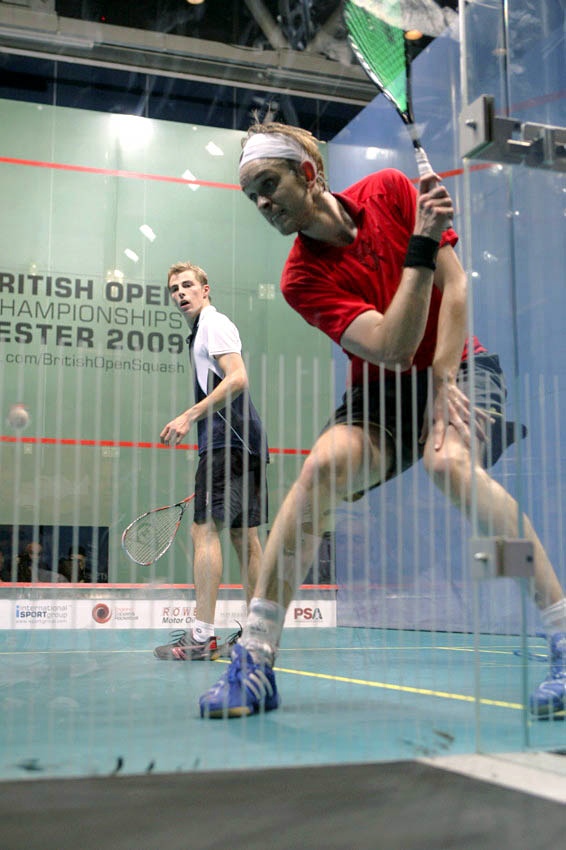By Rod Symington, WSF Referees and Rules Committee
This month’s column results from yet another reader’s question:
The server hits a ball from right box, ball hits the left side wall, then the back wall, and receiver moves backwards nearly into the server’s half of the court; stops and asks for a let, rather than hitting a shot that could come close to the server who is making room to play the ball. Referee says, “Stroke!” I was the one returning the ball, didn’t feel that the server was in the way of being hit, but it would have been close, so I said: “Let’s play a let.” This raised the issue of whether or not the players can overrule the referee. I can’t say that I know the “rule” about this, but logic tells me that if the striker would have benefited from a stroke but says play a let, that ought to take precedence.

There is, in fact, nothing in the current Rules about whether or not the players, in agreement with each other, can overrule the Referee. The only reference is in Rule 15.5 that no player may request a change of Referee or Marker. But logic is the way out of this dilemma.
Why do you have a Referee? If you want to make all the decisions yourselves (which would, in fact, be ideal), go ahead and play without a Referee. Or do you only want to accept some of the Referee’s decisions and agree on the rest between yourselves? Same difference.
When you step on the court, you are saying: “I agree to play this match with this Referee and to accept the Referee’s decisions.” (That is also the clear implication of Rule 15.5.)
In the case of interference (in respect of which most of the disputes on a squash court take place), you have two options: either you accept the Referee’s decisions, or you go home. The Referee will try to apply the same standards to both players, but those standards may differ slightly from person to person. (Just consider for a second, backswing interference: no two referees will have precisely the same standard, because the line between being clear and not being clear is imaginary.)
The two players, being involved in the play and concentrating mostly on the ball, do not have the Referee’s perspective of the relationship between the players and the ball. Maybe you did, indeed, think, that you were clear, but only an objective observer of the play will have a clear and unbiased perspective—and will be able to apply his or her standard consistently. The Referee’s job is to apply a consistent line from the start, and the players need to know what that line is so that they can play accordingly.
Consistency is the most important factor here: A good referee strives to be consistent in making decisions about interference. But how can there be a consistent standard in the match if the players choose to overrule the Referee from time to time? There cannot—and that is why the Referee’s decisions must be accepted in good faith by both players.
The only time a Referee should accept a decision agreed upon between the players is in respect of what is called a “Marking” decision (i.e., whether or not the ball was down, not up, or out). If the players agree on such a call, the Referee should accept it, because they are closer to the action and this is a factual matter, rather than a situation that calls for interpretation and the consistent application of a standard.
Thus the only mature attitude to take on court is to accept the Referee’s decisions on interference—and get on with the game.


